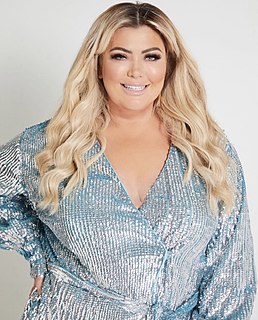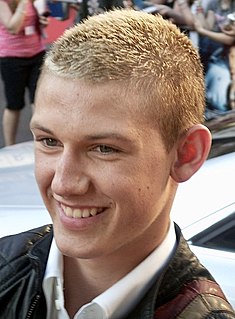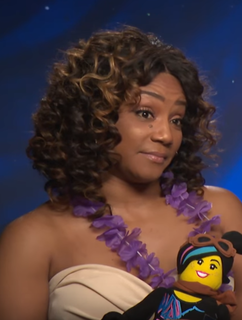A Quote by Thomas Middleditch
I think when you go in, with film or television, you want to tell this narrative. And with 'Joshy,' you want it to be grounded with moments - it's not like, 'Everyone be as funny as you can, quickly, at all times!' It's not like that. You have to pick the right improvisers.
Related Quotes
I do think the challenge, in a way for me, is to write a narrative film and when you finish watching it you feel like it's a collage. You tell the narrative, you tell the story, but you feel like you've created this tapestry. But it also has a shape, a story. So I think there's a middle ground that I try to strike... away from where everyone else seems ready to go, which is, setup, payoff. You know, He's afraid of water, oh, and at the end he's swimming in water - oh, my God. I hate that stuff.
Instead of improvisers who want to be funny by themselves, we aim to try and make the scene itself as funny as possible. As a creator, I think that's someone you'd rather work with, whether it's a movie or a sitcom; that kind of methodology is good for collaboration. People want to be with those kinds of performers.
What I want to do is create great content on television and movies. It is not my role to program only for Latinos, and you can't really assume that Hispanics only want Hispanic content. But I do think that we are severely underrepresented in television and film. And instead of complaining about not seeing ourselves, we should become film producers, directors, and writers, and tell our story.
Films are subjective - what you like, what you don't like. But the thing for me that is absolutely unifying is the idea that every time I go to the cinema and pay my money and sit down and watch a film go up on-screen, I want to feel that the people who made that film think it's the best movie in the world, that they poured everything into it and they really love it. Whether or not I agree with what they've done, I want that effort there - I want that sincerity. And when you don't feel it, that's the only time I feel like I'm wasting my time at the movies.
To spend any time with someone who is among the top five film composers of the last 50 years is pure gold dust. I mean, not necessarily stylistically, because everyone is different in what their music sounds like, but the approach and how to look at a film, how to think about a film, how to decide what you want to do, how to think about characters, how to think about art, how to think about narrative, how to liaise with producers, how to liaise with directors.
The casting of any film is around 60% of the film, but it's also about the right casting insight. It's a bit like a house of cards, everyone has to match up in a certain way so the whole structure is grounded. So that's essential, and yes, it's about finding the right people and the right constellation around the lead character.
What people really want is not to make something funny, but to make something amusing - which, in many ways, is the opposite of funny. To amuse someone is to eliminate discomfort and awkwardness, kind of like a massage for the brain, while to be funny is to point out awkwardness and discomfort. Everyone thinks they want funny, but they really want amusement.



































